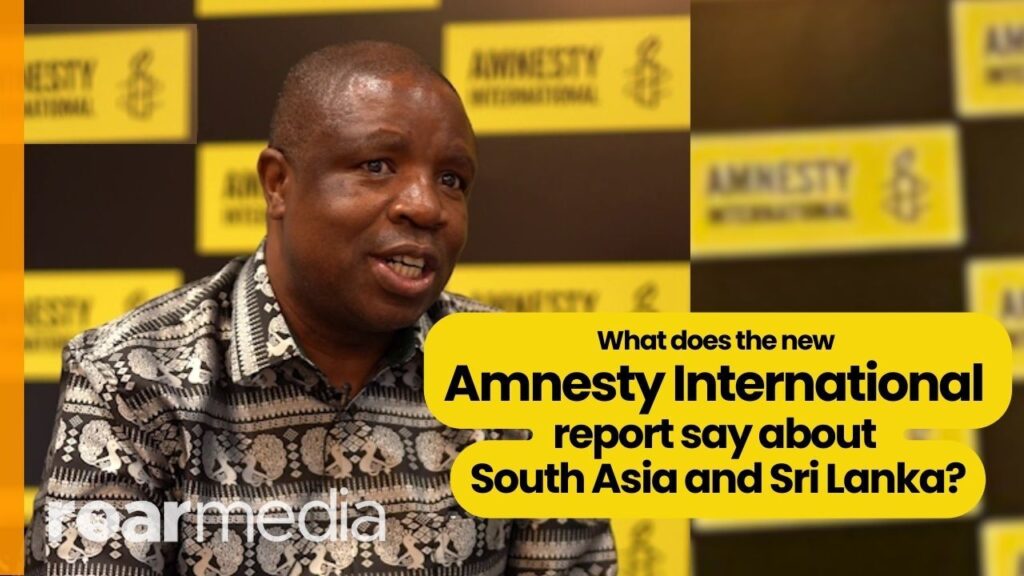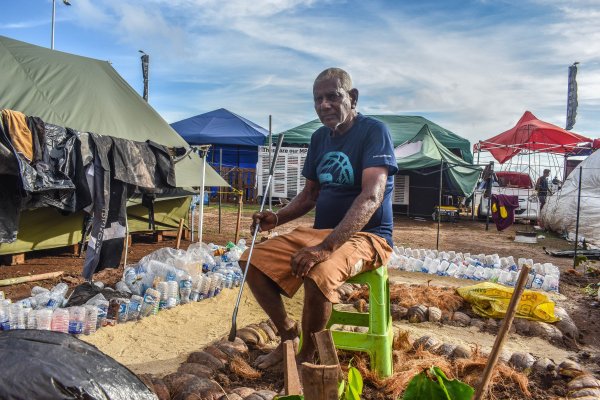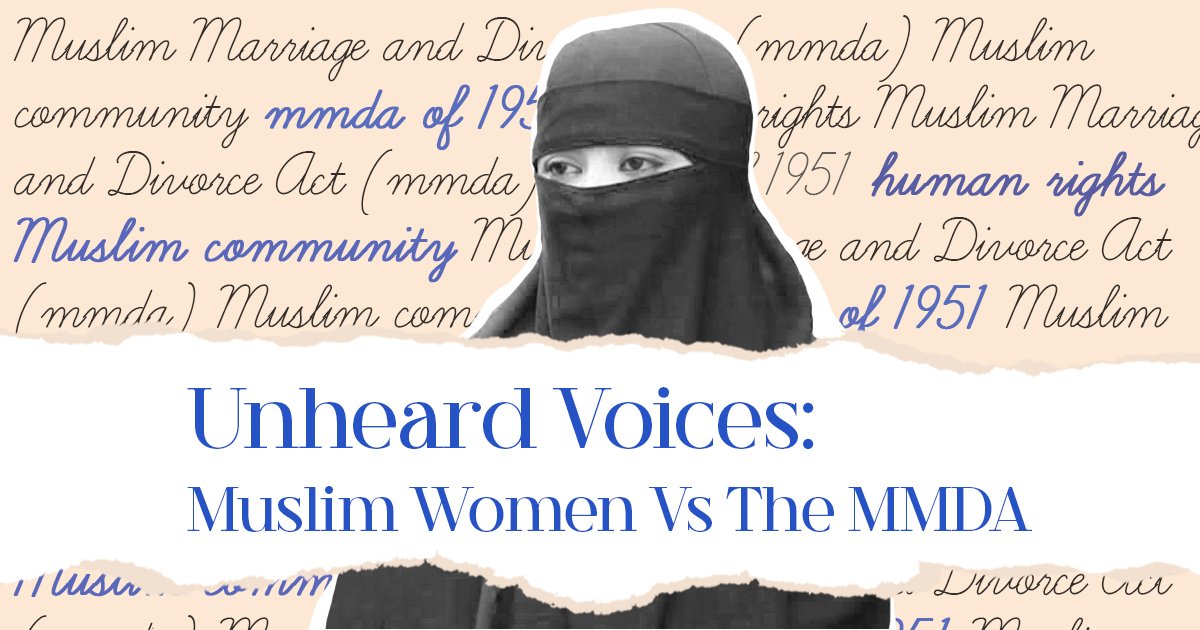
It has been a rough and prolonged journey for women advocating for reform of the controversial Muslim Marriage and Divorce Act (MMDA), the law that governs several aspects of family life for Sri Lankan Muslims. Originally drawn from a colonial-era piece of legislation, the MMDA of 1951 has been problematic since its inception, with those from both within and outside the Muslim community pointing to injustices that take place under it; injustices that violate both human rights and religious principles.
Muslim women’s groups in Sri Lanka have been rallying against this discriminatory family law for over three decades, facing challenges posed by either the state or patriarchal elements from within their own communities. The earliest attempts to reform the law can be traced back to 1954, a mere three years after the launch of the MMDA as it is today. Since then there have been multiple attempts to rally for reform, with several grassroots-level groups joining the struggle. There have also been multiple assurances provided by consecutive governments that appointed various committees to study and propose amendments to the law.
Among the most recent developments were reports late last year that suggested the incumbent government would finally make crucial changes to the law — such as prohibiting the marriage of underage Muslims, in line with the rules that apply to all other Sri Lankans — by January 2022. By March 2022, however, the law remains unchanged, and the onus continues to fall on Muslim women to take on the fight for reforms, regardless of any backlash that they may face. Activists have argued that the MMDA, to date, controls Muslim women’s bodies and family spaces under the pretext of safeguarding religious principles.
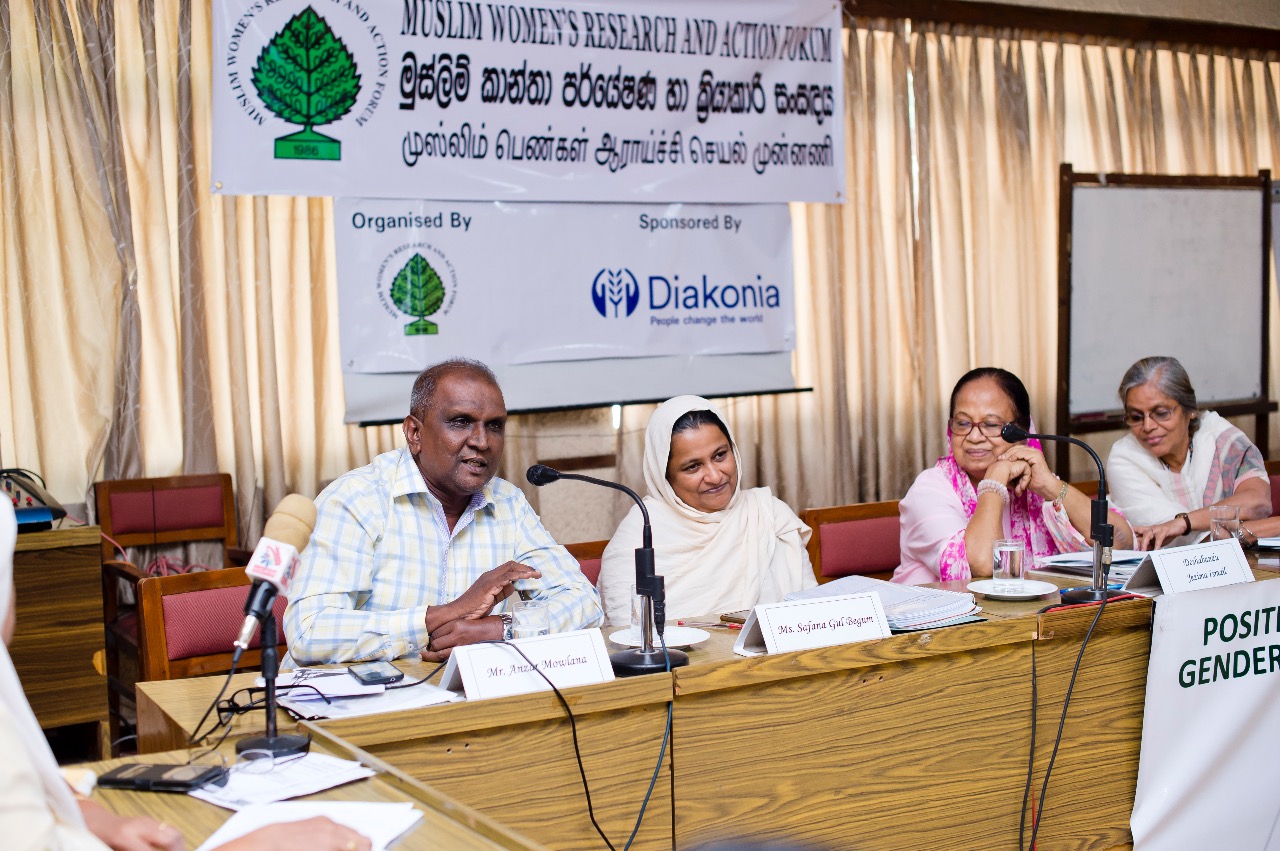
An Unrecognised Struggle
Across the globe, Muslim women’s fight to claim spaces and demand justice have remained invisible and undocumented; it is no different in the Sri Lankan context. For instance, although the topic of ‘MMDA reform’ has been making headlines in recent times, not many people really know of the personal struggles and stories of the women who launched, and carry on, this movement. These women’s efforts need to be acknowledged, their struggles remembered, and their stories shared. Unfortunately, when the issue has been discussed in recent times, the narrative tends to be spun in a way that suggests that this is just another half-baked reform movement, carried out by young, city-based women influenced by ‘western’ ideas, with no religious footing. This negates all the work that Muslim women’s groups have been putting in over the last many, many years — and conveniently veils the actual problem at hand: the need to reform the MMDA.
Muslim women’s organisations in Sri Lanka, such as Muslim Women’s Research and Action Forum (MWRAF), founded by Jezima Ismail and Faizun Zackariya, have, in fact, been steering the reforms movement for over 35 years, to fight for the rights of affected Muslim women and girls in the country.
“It is upsetting to hear many young people, today, claim that no one has done any work on reforming the MMDA,” said Shafinaz Hassendeen, director at MWRAF. “MWRAF has been intimidated multiple times for its progressive stance, and we have been accused of carrying an agenda, being funded and promoting un-Islamic ideals. And yet, we end up listening to people claim that no one has done anything to fix the MMDA. Why is there still noise around the MMDA then? This is because we have carried this movement forward,” she told Roar Media.
Since its inception in 1986, MWRAF has been at the forefront of the reform movement, and continues to base its work on the lived realities of women and girls. MWRAF’s work takes into account wider interpretations of Islamic jurisprudence as well as progressive laws being implemented across the Muslim world. MMDA reform is only one part of MWRAF’s work, which spans diverse topics affecting women, including addressing issues of violence against women, reproductive rights and relief work.
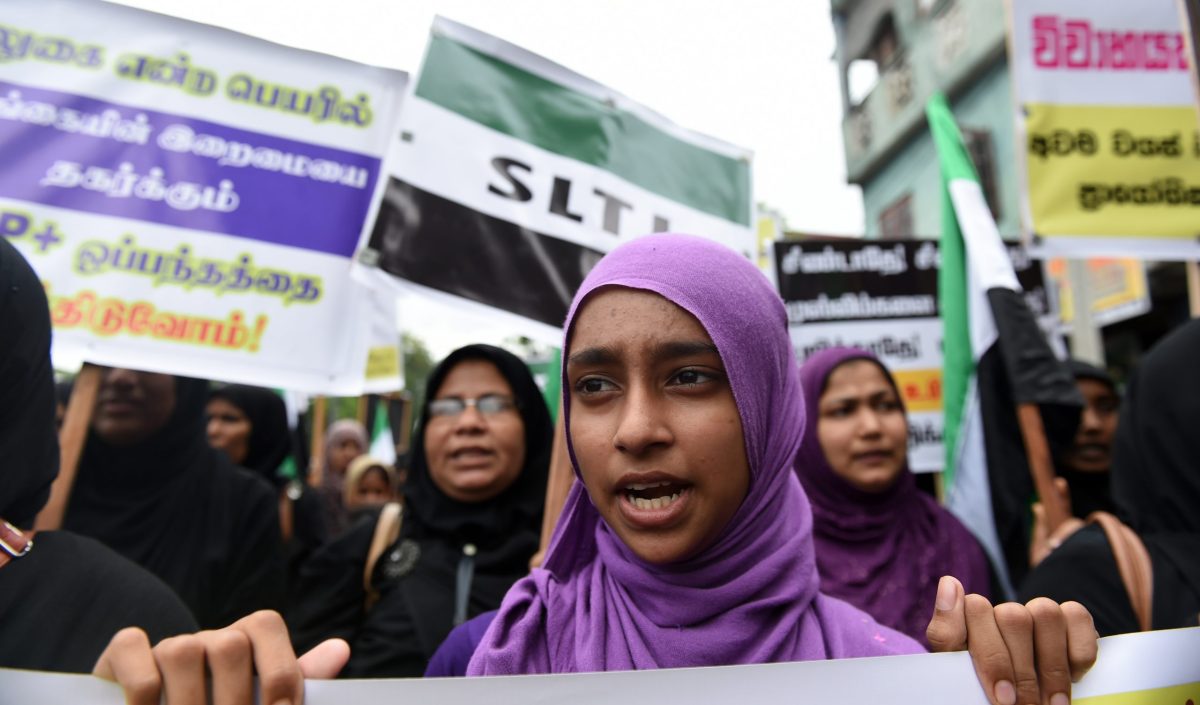
A Fight By Muslim Women, For Muslim Women
During a time when Sri Lankan politics was fraught with ethnic tensions in the 1980s, and amid a vibrant women’s rights movement in the country, educated Muslim women sought to occupy more spaces in the public domain. MWRAF started out as one such group of women who informally came together in the late 1970s, to discuss issues affecting women, specifically Muslim women, in Sri Lanka. This was how their journey began — in paving the path for a more inclusive, equal society for Muslim women and filling a vacuum that had left them invisible.
“The problem [lies in] homogenising women’s lives. To put women’s identities and cultures into a box, of who you should be, how you should be, what you should wear,” said Faizun Zackariya, an MWRAF co-founder/director. “And women end up having no right to think of another world, an alternative. These stereotypes need to be dismantled, to bring women’s potential, to be champions for effective-equal social change. There is pluralism across the Muslim world, there is diversity, there is differentiation within the Sri Lankan Muslim society. And women have a right to interpret religion in a progressive way… we see and experience ample examples around the Muslim countries and communities. To prevent this is oppression by itself,” she said.
Following the government-appointed Personal Law Reforms Committee in 1984, these women decided to formally establish an organisation that came to be known as MWRAF, and their work started taking form, especially at the community level. MWRAF had also been closely working with Women Living Under Muslim Laws (WLUML), a global group that seeks to address gender justice within Muslim contexts, which has helped them address and fix gaps in religious teachings and gender bias that the community had become accustomed to.
In order to expand the Muslim women’s rights movement, MWRAF roped in judges, ministers, Muslim religious leaders, rights activists, lawyers, and men and women from the community. Their work focused primarily on educating pockets of the Muslim community across the country, especially women. Through training and counselling, MWRAF also played a crucial role in the establishment of many community-based, women-based local organisations. Thanks to their expertise on Islamic jurisprudence and the documented lived realities of Muslim families, MWRAF was consulted and included in government committees looking into law reforms (such as the 1990 Sahabdeen and 2009 Justice Saleem Marsoof committees) and initiated the Independent Committee for Muslim Personal Law Reforms (ICMPLR) in 2005.
“MWRAF’s work for over three decades — building a knowledge base, developing capacities of community activists, collecting evidence and lived realities including cases from the Board of Quazis [exclusively male ‘judges’ who oversee implementation of the MMDA], networking both nationally and internationally, and inserting the presence of Muslim women in reform committees — has significantly contributed towards building the base of the Muslim women’s movement in Sri Lanka,” said Hyshama Hamin, co-founder of the Muslim Personal Law Reform Action Group (MPLRAG), a group of volunteer activists that has been active since 2016.
However, fast forward 36 years since MWRAF started pushing for reform, the MMDA still remains as it was in 1951. “The government had promised reforms in 2021 and now they have gone back on their word yet again. It has been so disappointing, [after we came] so close to getting reforms last year, the closest we have come so far in all our years of work,” said MWRAF director Anberiya Haniffa.
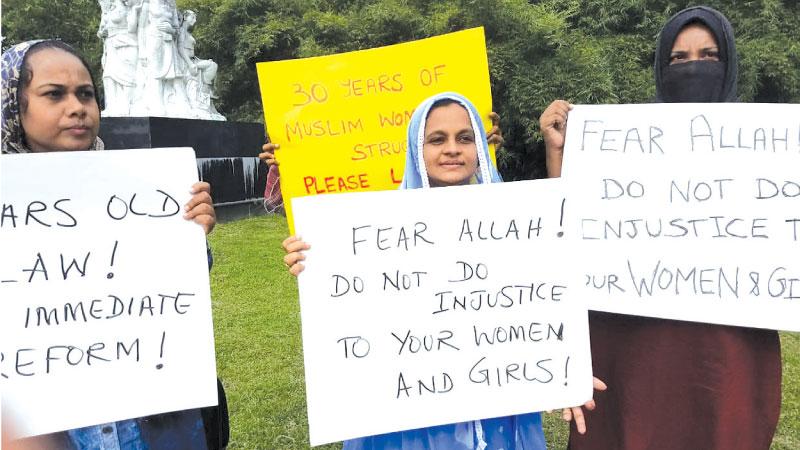
Multiple Challenges
Muslim women’s efforts to reform this discriminatory family law have been thwarted at every juncture. Decade after decade, reforms continue to be stalled by patriarchal and conservative male-dominant and male-only groups who cite dogmatic interpretations of Islam and assert themselves as the custodians of Muslim women.
Predictably, even after all these years, religious orthodoxy continues to prevail – and if at all has only worsened. This is further exacerbated by state failure to intervene and protect Muslim families and women. The current government continues to push for a one-country, one-law mandate and in doing so ignores its duty to safeguard minority and women’s rights. This is how Muslim women and families continue to be the scapegoats of both conservative men and the state.
In the wake of the Easter Sunday bombings in 2019, there have also been strong calls for the abolishment of the MMDA. This has put pressure on Muslim community leaders to address the demands of Muslim women and reform the MMDA without delay — as this is the only way to protect the MMDA from being repealed altogether and reduce prejudices against Muslims.
How Much Longer Do Muslim Women Have To Wait?
Today, many Sri Lankan Muslim women are exasperated and angry; for how much longer should they keep shouldering this fight?
MPLRAG’s Hamin told Roar, “Groups like MPLRAG came in with bolder, louder and younger perspectives and approaches to MMDA reform, but we have a legacy of work started by MWRAF to build on. We were able to push the envelope further and demand for full equality and autonomy under the MMDA, but the struggle and call for justice for Muslim women started with MWRAF’s journey over 30+ years ago and for their courage we are grateful.”
On the subject of the long wait for reform, Hassendeen said, “Of course, we do feel hopeless and exhausted some days, but we have to go on. Because we see the women who are suffering, who approach us for help and support. We cannot give up now, we want these women to get their rights. We cannot stop until we see reforms.”
She added, “I wish that while we are still alive, we get to see some reforms to the MMDA.”


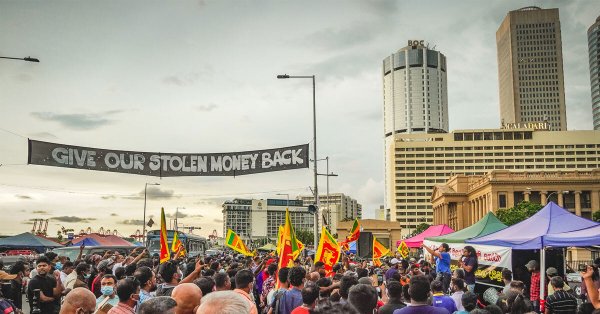
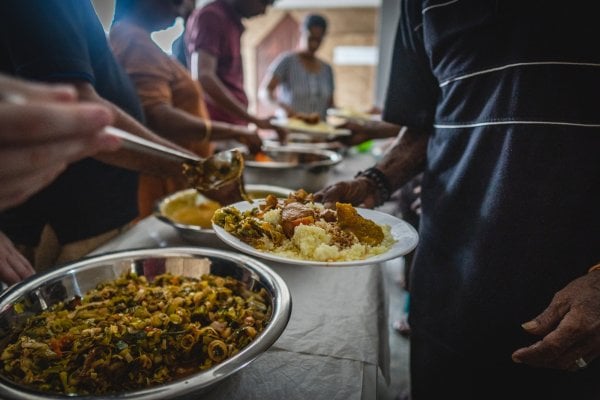
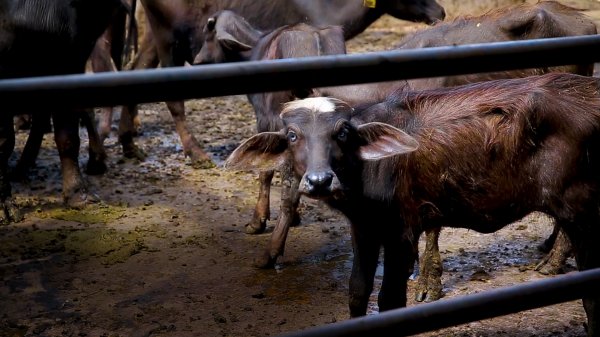
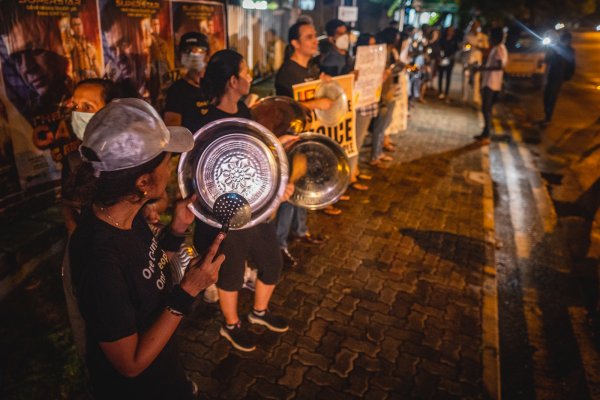
.jpg?w=600)
